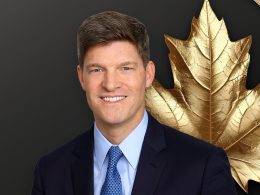“Patience”
by Jeffrey Saut, Chief Investment Strategist, Raymond James
March 26, 2012
“If there is ever a time when speculators should exercise patience, it is in waiting for a proper opportunity to buy stocks. The desire to make money is at the foundation of all commercial and financial transactions, but the mere desire to make money should never be the mainspring of speculative action. Knowledge or belief based on intelligent analysis that a speculative opportunity presents itself is the only safe basis for making purchases of stock. It is in forgetting that principle that so many speculators err. They do not ask when they are preparing to buy stocks, ‘is the stock cheap and is it selling below its real value?’ [Rather they ask] ‘Is that stock going up?’ The only sound reason for buying any stock is that it can be had cheap.”
... R.W. McNell; Beating The Stock Market, 1927
Bet it surprised you that quote is dated 1927. Read it a couple of times away from the maddening crowd and reflect on it because certain phrases will grab you with their wisdom. I first read McNell’s book when I was a pup in this business back in 1971. The insights I gleaned from said book caused me to begin keeping three loose-leaf notebooks. The first notebook was the “I should have” notebook where I recorded the stocks I had considered buying, but didn’t, only to watch them trade higher. The second notebook was the “I shouldn’t have” book where I recorded the stocks I had bought that I should not have purchased because they went down and I was stopped-out of those positions with a loss. The third notebook was the “I did” book where I listed the stocks I had bought that had worked and made me decent returns. The first two books are thick, while the “I did” book is relatively thin. What I learned from this exercise is that when I try to force myself to buy a stock, rather than have the patience to wait for a “fatter pitch,” is when I almost always lose money. Indeed, many investors suffer from an “action bias,” aka a desire to do something, when in reality there are times in the markets when there isn’t much to do. When that occurs the best plan is to do nothing and wait for a “fatter pitch.”
Obviously, that is what I have been doing since the buying stampede ended in late January. Well that’s not entirely true, because I have actually raised some cash in anticipation of either a pause in the stock market or a correction. So far it has pretty much only been a pause with an upward bias, which is still bullish action. And that, ladies and gentlemen, is why I have been consistent with the statement, “You can get cautious, but do not get bearish!” All in all, I think most will agree the past two months have been very frustrating with not much follow through either on the upside or the downside. During that time frame the NYSE McClellan Oscillator has worked off most of its overbought condition. However, the stock market’s internal energy is still completely used up and should take at least another six to seven sessions to rebuild. Accordingly, if the S&P 500 (SPX/1397.11) stays above the 1375 to 1385 support zone over the next six to seven sessions it would be very bullish action suggestive of a continuation of the upside runaway we have been experiencing since mid-December of last year. Failing to hold above those levels would likely mean a downside test into the 1320 to 1340 zone; that is what commercial hedgers are anticipating. Indeed, for the latest week hedgers were net short ~$9.6 billion of the NASDAQ 100 (NDX/2728.55), which is an all-time record. While hedgers are not always right, history does show that markets tend to have a difficult time rallying when professional hedgers are this bearish.
While the hedgers will be watching this week to see if their bearish bets pay off, the Obama administration will be watching the Supreme Court because beginning today Obamacare goes to court. I believe this week’s court session is unprecedented as the Chief Justice, Mr. John Roberts, has allowed those making their cases six hours, over three days, for their presentations (see the schedule on page 3). Typically the Supreme Court only grants one to two hours for a case. The opposition to Obamacare will argue that a citizen should not be forced by the government to buy any service. Those in favor of Obamacare will likely center on this quote from Walter Dellinger’s spiel to the Senate’s Justice Committee on February 2, 2011:
“As Justice Scalia observed in his concurring opinion in Gonzales v. Raich, ‘where Congress has the authority to enact a regulation of interstate commerce, it possesses every power needed to make that regulation effective’.”
William Eskridge, a law professor at Yale, was interviewed in a Forbes article dated 10/7/2011 on the same question. To wit:
“The answer, Eskridge says, lies in U.S. v. Comstock (2010), where Breier writes a broad opinion on the Necessary and Proper Clause, which gives Congress the power to take what measures it thinks necessary to accomplish its goals. The main case in this area is Mcculloch v. Maryland, the 1819 decision that upheld Congress’ power to establish a national bank.”
Of course, such arguments go to the very core of our government and the Constitution. The winner of the case will also have a “leg up” in the Presidential race. If Obamacare is found unconstitutional it should give candidate Romney the ability to say – the Administration tried unsuccessfully to force more government on the people and failed. The quid pro quo is that if Obamacare is declared constitutional the Administration will carry that victory right into the election. In any event, the very essence of our government will be decided this week by the Supreme Court.
Amid this Obamacare uncertainty, something fairly unusual has happened, the Health Care Select Sector SPDR (XLV/$36.62) is challenging its all-time high. This is unusual because as Michael Santoli writes in this week’s Barron’s:
“It is refreshing that investors and analysts collectively are not enamored of the group. It seems that the pending (possible) implementation of the health-care overhaul, and the expected Supreme Court decision on its constitutionality, has given observers plenty of reason to worry over the future economics of various medical and insurance fields.”
In last week’s letter I suggested participants watch the KBW Banking Index (BKX/49.53) for the overall stock market’s near-term direction because the Financials have been leading this year’s charge. Subsequently, the BKX tagged an intraday high last Monday of 50.69 and fell to an intraday low of 48.77 on Friday with an attendant weekly fade for the D-J Industrials (INDU/13080.73) of 1.15%. This week I suggest you watch the XLV for gleanings into how the Supreme Court will rule and what that means for the healthcare complex.
The call for this week: I continue to exercise patience with the equity markets while I sit on the cash raised over the past number of weeks. Unlike many, I consider cash an asset class. Indeed, to assume the investment opportunity “sets” that are available to you today are better than ones that will present themselves next week or next month is naïve. To take advantage of those opportunity “sets” one needs to have some cash. For those wishing to be more aggressive, it looks to me as if the U.S. dollar is in the process of breaking down. If true, and only for a trade, the Market Vector Gold Miners’ (GDX/$49.76) 16.3% mini-crash since February 29th should be over. A good stop-loss point would be slightly below last week’s intraday low of $48.45.
Schedule
Monday, March 26, 10:00 a.m. – 11:30 a.m.
Oral arguments about: Does the Tax Anti-Injunction Act bar judicial review of the Patient Protection and Affordable Care Act until the mandate takes effect in 2014?
Tuesday, March 27, 10:00 a.m. – 12:00 noon
Oral arguments: Is the individual mandate constitutional?
Wednesday, March 28, 10:00 a.m. – 11:30 a.m.
Oral arguments: Is the mandate severable from the rest of the law?
Wednesday, March 28, 1:00 p.m. – 2:00 p.m.
Oral arguments: Is the Medicaid expansion constitutional?
Friday, March 30
Audio transcripts of the week’s oral arguments released; and the court decides the case in secret conference.
Monday, June 25
Court publishes its decision (tentative)
Source: FreedomWorks
Copyright © Raymond James









